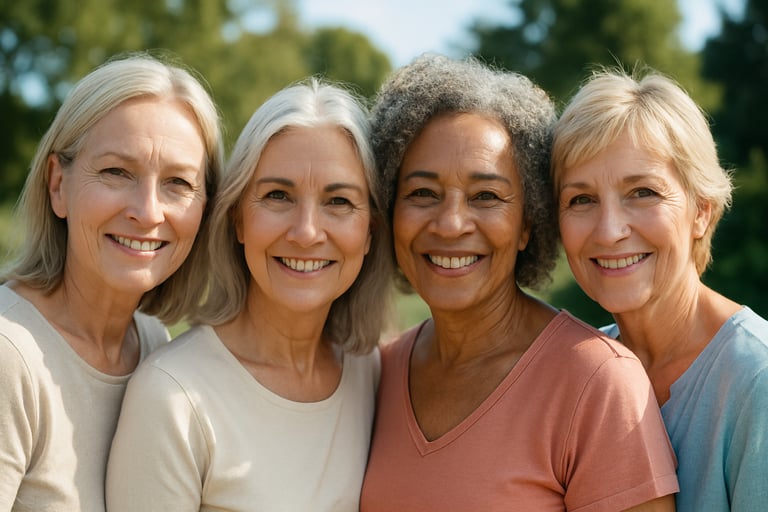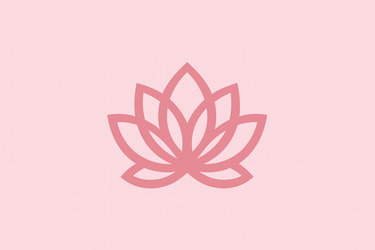The 10 Most Googled Menopause Questions
(And How Top Clinics Answer Them)
I spend a lot of time looking at what women are actually searching for when it comes to menopause, and honestly, it breaks my heart. Last month alone, Queensland women searched these 10 questions over 50,000 times. The problem? Most are getting answers that were outdated before they even Googled them.
If you're sitting there wondering whether you're "too young" for perimenopause, or if HRT will actually kill you (spoiler: probably not), or why your GP keeps brushing off your symptoms – you're not alone. Let me share what the really good menopause doctors are actually telling their patients in 2025.
1. "When should I start worrying about menopause?"
This is probably the most human question on the list, and I love that women are asking it this way. You're not asking for textbook symptoms – you want to know when to actually do something about what you're feeling.
Here's what most GPs say: "Come back when it's really bad" or "You're too young to worry about that yet."
Here's what good menopause doctors say: If your periods are doing weird things, if you're waking up drenched in sweat, if you feel like you're losing your mind, or if you just don't feel like yourself anymore – that's when. Age doesn't matter as much as you think. I've seen women in their early 40s with classic perimenopause symptoms, and their concerns are completely valid.
The best clinics in Brisbane and the Gold Coast now offer extended consultations (30-40 minutes) specifically for this complexity. Even better news: from July 2025, Medicare actually covers these longer menopause assessments. Finally, someone gets that this stuff can't be rushed.
2. "Is hormone therapy actually safe, or am I risking my life?"
God, this question makes me want to hug every woman who's ever typed it. You've been scared by headlines from 20+ years ago, and honestly, that's not your fault.
The fear-mongering answer: "HRT causes cancer and strokes, avoid at all costs."
The current reality: For most women under 60, especially if you start within 10 years of menopause beginning, modern hormone therapy is actually pretty safe. The 2025 research keeps backing this up. We're not talking about the same hormones your grandmother might have taken – these are different, better, and when prescribed properly, the benefits usually outweigh the risks by a long shot.
Brisbane's best menopause specialists use what are called "body-identical" hormones now, and they tailor everything to your specific situation. It's not a one-size-fits-all approach anymore.
3. "How much is this going to cost me?"
Ah, the question everyone's thinking but feels awkward asking. I appreciate the honesty.
Specialist menopause appointments typically cost $250-400 for that first long chat. But here's where 2025 got a lot better for Queensland women: those Medicare rebates I mentioned? They're real. Plus, if you need hormone therapy, some of the best options (like Estrogel and Prometrium) were added to the PBS in March. Instead of paying $650+ per year, you're looking at $7.70-$31.60 per month depending on your concession status.
The real cost isn't the appointment fee – it's what happens when you don't get proper help. I've heard from too many women who spent thousands on random supplements and treatments before finding someone who actually knew what they were doing.
4. "I'm only 45 – is this actually perimenopause?"
Short answer: Maybe, and that's completely normal.
Longer answer: Perimenopause can start in your early 40s. The average Australian woman begins menopause at 51, but the lead-up (perimenopause) often starts years earlier. If you're 45 and your body feels like it's staging a revolt, you're not too young, you're not imagining it, and you're definitely not alone.
Good doctors focus on how you feel, not how old you are. Pattern changes matter more than hitting some arbitrary age milestone.
5. "How do I know if my doctor actually knows about menopause?"
This is such a smart question because, honestly, many doctors received about 30 minutes of menopause education in medical school. Total.
Here's what to look for: Someone who's genuinely interested in menopause (not just squeezing you between other patients), gives you proper time to talk, stays current with research, and doesn't brush off your concerns with "that's just aging."
Good signs include membership in the Australasian Menopause Society, recent menopause-specific training, or doctors who can explain treatment options without immediately defaulting to antidepressants for everything. You want someone who treats menopause as a specialty, not an inconvenience.
6. "Is menopause making me crazy, or am I actually losing it?"
This question hits different because anxiety and mood changes during menopause are so real, but often dismissed as "just stress" or "getting older."
The truth: Hormonal changes directly mess with your brain chemistry. The anxiety, the rage, the feeling like you're not yourself – it's not in your head, it's in your hormones. Good menopause doctors treat mood symptoms as seriously as hot flashes because they understand the connection between declining estrogen and neurotransmitter function.
You're not crazy. You're not weak. You're experiencing a real, physiological response to hormonal changes, and there are effective ways to address it.
7. "Why isn't anything working for this weight gain?"
Because menopause changes the rules of the game, and nobody told you.
The "eat less, move more" advice that maybe worked in your 30s? It often falls flat during menopause because your metabolism, muscle mass, and fat distribution are all shifting. The best Brisbane and Sunshine Coast menopause clinics work with specialists who understand menopausal metabolism.
It's not about willpower – it's about working with your changing body instead of against it.
8. "Do any natural remedies actually work, or should I just take hormones?"
Great question, because the supplement industry loves menopausal women and our desperation for solutions.
Reality check: Some natural approaches have solid research behind them – things like cognitive behavioral therapy for hot flashes, regular exercise for mood and sleep, and specific dietary changes. But the vast majority of "natural menopause remedies" range from "might help a little" to "complete waste of money."
Good menopause doctors help you figure out what might work for YOUR situation, whether that's natural approaches, hormones, or a combination. They don't have an agenda – they have evidence.
9. "What blood tests do I actually need?"
Most women expect a simple test that says "yes, you're menopausal" or "no, you're not." Unfortunately, it's more complicated than that.
Modern menopause assessment goes way beyond just checking your FSH and estrogen levels (which can be all over the place during perimenopause anyway). Good doctors in Brisbane and elsewhere test for thyroid function, vitamin D, iron, lipids, and glucose alongside reproductive hormones.
The diagnosis is mostly about your symptoms and story, not just numbers on a lab report. Tests help guide treatment and monitor your overall health, but they don't tell the whole story.
10. "How long do I have to feel like this?"
The question that keeps everyone up at night (along with the night sweats).
The menopause transition typically lasts 4-8 years total, but here's the important part: you don't have to suffer through all of it. With proper support and treatment, many women feel significantly better within months, not years.
The best Queensland menopause specialists focus on helping you feel good during this transition, not just survive it. There's a difference between "this is normal" and "this is something you have to endure."
Finding Your People in Queensland
2025 has genuinely been a game-changer for menopause care in Australia. The Medicare support, PBS listings, and upcoming national guidelines mean quality care is becoming more accessible than ever.
Whether you're in Brisbane's inner suburbs like Fortitude Valley or Annerley, on the Gold Coast from Southport to Currumbin, the Sunshine Coast from Noosa to Caloundra, or in regional Queensland towns like Toowoomba, Cairns, or Townsville, you deserve:
Time to actually talk (those 30+ minute Medicare-supported appointments)
Someone who listens without judgment in Brisbane's CBD or your local clinic
Current knowledge, not outdated fears
Treatment options that fit your life and budget
Doctors who understand this isn't just about hot flashes
The good news? Queensland is seeing a real shift in menopause care quality. From specialist clinics in Brisbane's medical precincts to GPs in Gold Coast suburbs who've upskilled in menopause care, to telehealth options connecting rural Queensland women with experts in the major cities – the landscape is improving fast.
Don't settle for being dismissed or told to "just deal with it," whether you're in a major Queensland city or a smaller regional town. You're living through one of the biggest hormonal shifts of your life – of course it's complicated, and of course you deserve proper support.
Ready to find someone who actually gets it? Our directory connects you with Queensland practitioners who understand that good menopause care isn't about one-size-fits-all solutions – it's about finding what works for you.
This information is educational and doesn't replace proper medical advice. Always chat with qualified healthcare providers about your specific situation.






Support
Contact
info@qldmenopause.com
© 2025. All rights reserved.
Information is general and not a substitute for medical advice. Confirm services, fees, and availability with the clinic.
